Nintendo Switch still has an online multiplayer problem
Almost a year on from Nintendo Online, and the services still feel half-baked
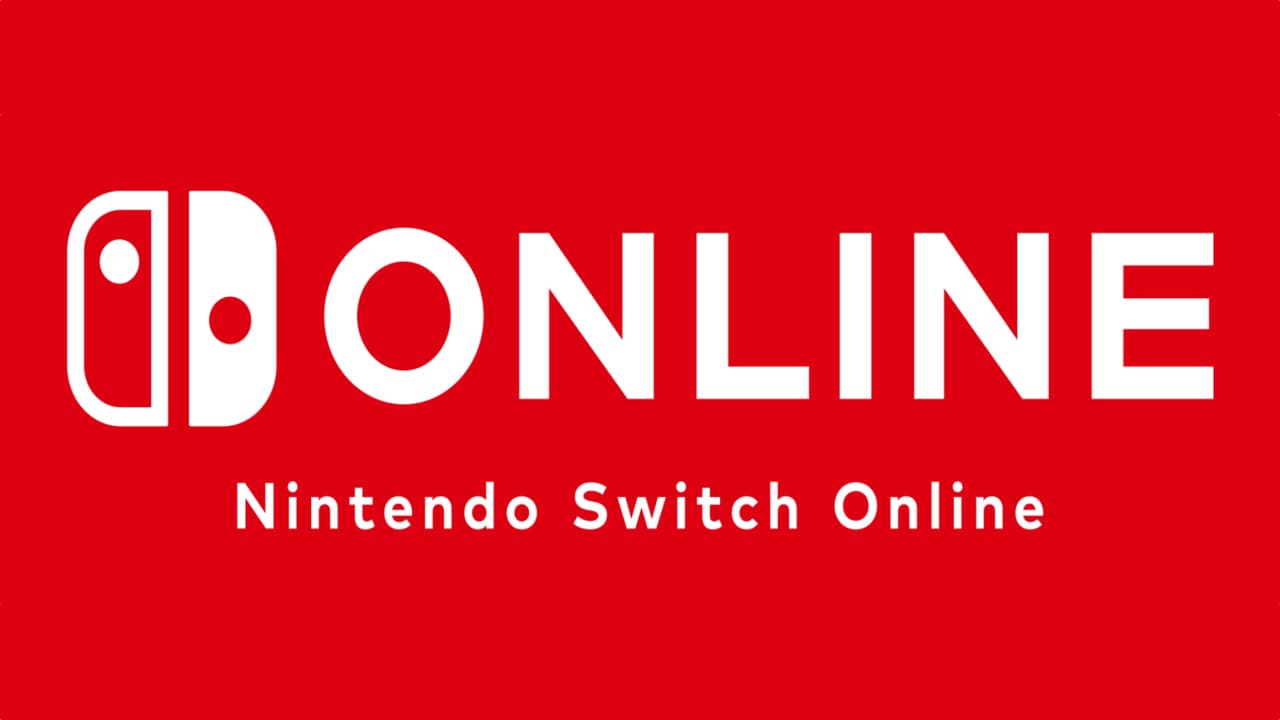
It seems strange that a console so geared towards multiplayer experiences as the Nintendo Switch fails so spectacularly to deliver a cohesive experience when it comes to online multiplayer. We're almost a year to the day since Nintendo Online launched and I still find it baffling that the Japanese gaming giant makes it so complicated, and sometimes downright impossible, to play with your friends. Or even talk to them.
Nintendo Online finally arrived some 18 months after the Switch itself, bringing with it a subscription fee – albeit a nominal one (£3.49 / $3.99 a month, or £17.99 / $19.99 for a year) – that allowed you to play online in select titles. The main draw for Nintendo Online is the ability to experience the online multiplayer of games like Splatoon 2, Mario Kart 8 Deluxe, Super Smash Bros Ultimate, and Super Mario Maker 2, but also gain access to the glorious time waster that is Tetris 99 aka Tetris Battle Royale. (No, I can't believe it actually exists either.) Aside from that, you get a selection of NES games to download and play, and... that's about it.
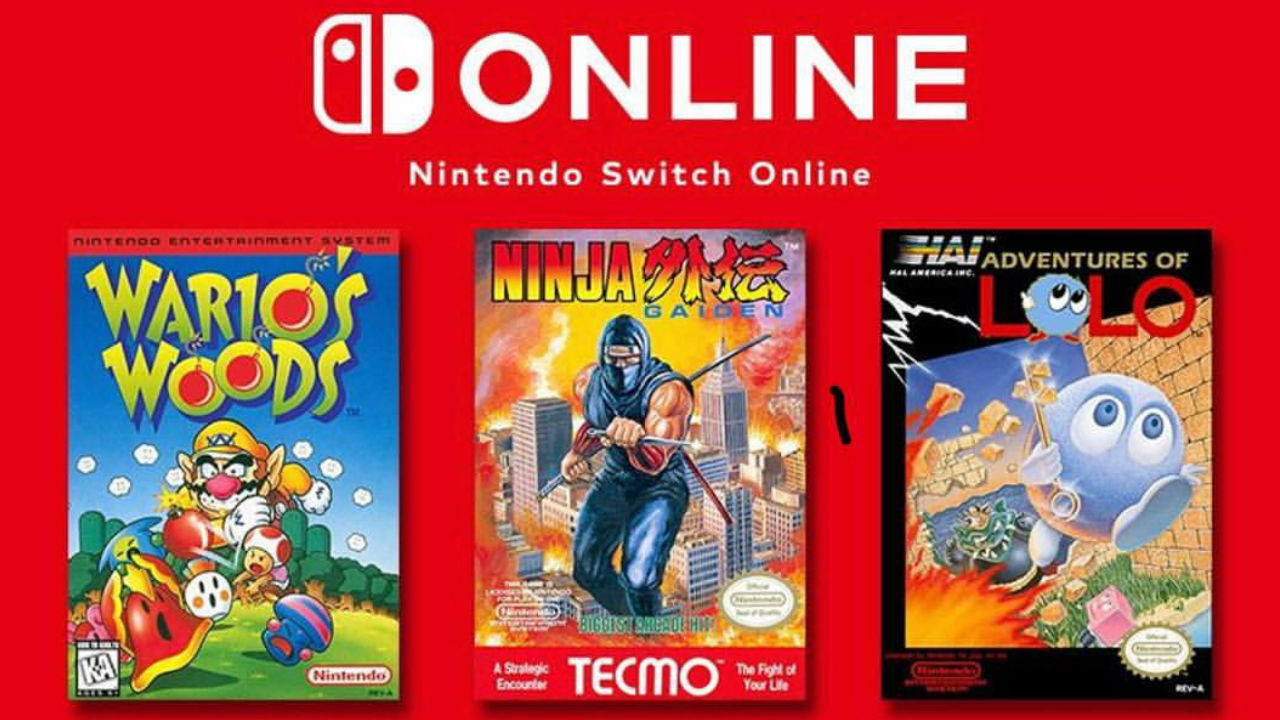
On paper that sounds exactly like an equivalent to Xbox Live Gold memberships or a PlayStation Plus membership: free games, online multiplayer access, and a couple of additional perks. But even with the reduced cost of a Nintendo Online subscription, it still feels like a limited experience.
That's mainly because Nintendo makes getting the various perks (beyond Tetris 99) a complicated mess. The NES games, for example, are hidden away behind the catchily titled 'Nintendo Entertainment System – Nintendo Switch Online' app found within the Nintendo eShop. And if you want to access voice chat in any of the supported games – Arms, Mario Kart 8 Deluxe, Splatoon 2, Super Smash Bros Ultimate and Mario Tennis Aces – you'll need to download the Nintendo Online smartphone app.
A pain in the app
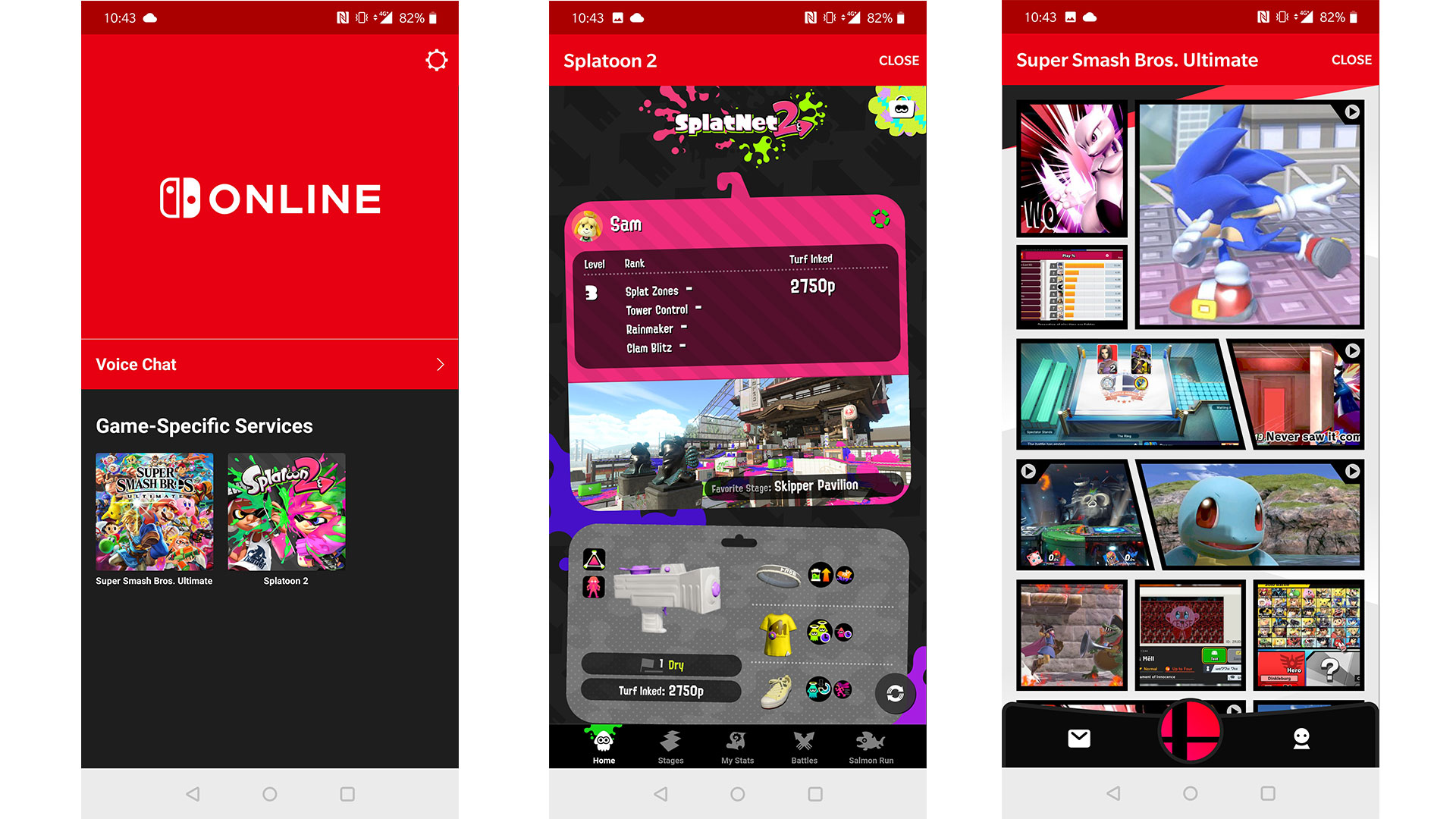
Oh deary me, the app.
For me, the sole purpose of the Nintendo Online app was to allow you to access voice chat, so you could actually talk with your buddies as you enjoy the pleasures, and perils, of online gaming together. I still wonder why voice chat wasn't built into the Nintendo Switch UI itself, as it is with PS4 and Xbox One (and the generations before it), but here we are.
Don't get me wrong, if you want to access voice chat for the supported games, it works perfectly. Plus, the additional content for Super Smash Bros. Ultimate and Splatoon 2 is invaluable for fans of either game – including a spirit team creation feature for Super Smash Bros, for example. However, as soon as you want to use the Switch as a platform for voice chat across all titles, you hit a brick wall. It physically only works with the supported games – Nintendo's own – so if you wanted to enjoy online chat while playing other online multiplayer titles, like Bethesda's Doom, or my personal favourites Stardew Valley, Farm Together, and Super Mario Maker 2, you'll have to find alternative means.
Weekly digests, tales from the communities you love, and more
It's interesting because getting involved with party chat with Fortnite on Switch merely requires you to plug in a headset with a mic into the Switch's own headphone jack. So the functionality is there, but frustratingly locked away behind Switch's protective wall.
From chat to play
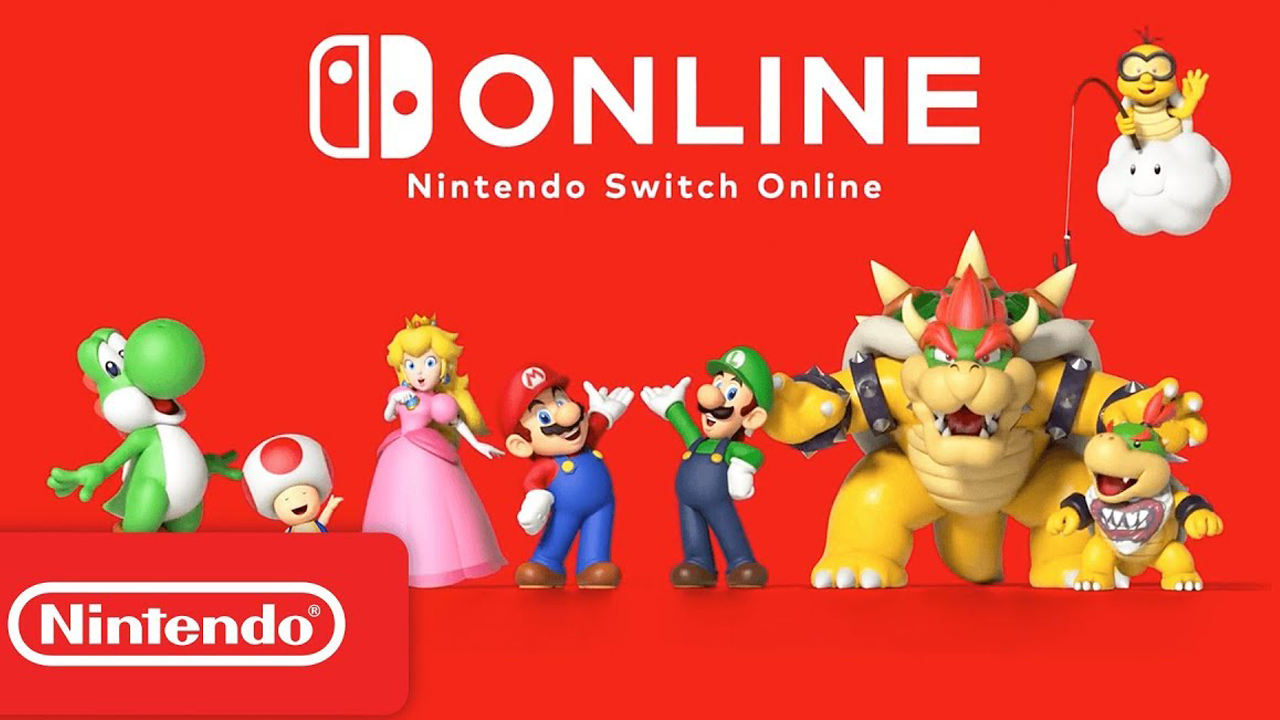
Of course, the limitations aren't just confined to chat functionalities, it's with the multiplayer in general, particularly when it comes to Nintendo's own titles. It's partly down to its strict adherence to making the Nintendo Switch a family-friendly console, and attempting to protect its youngest users. Nintendo desperately wants to limit the potential interaction of the younger player base from coming into contact with strangers on the internet, but by doing so limits online functionalities for the rest of the players.
The outdated Friendship Code system is part of this urge to protect. It's a system that started on the Wii back in 2006, meaning fans have now despised them for over a decade. Other systems allow you to add friends using their username, but Nintendo swears by its adherence to using this Friend Code system where you add your pals by knowing their personal random string of 12 numbers. It was something that former Nintendo of America President Reggie Fils-Aime promised wouldn't happen with the Switch during an interview with CNET the month before the Switch launched. Nintendo did it anyway.
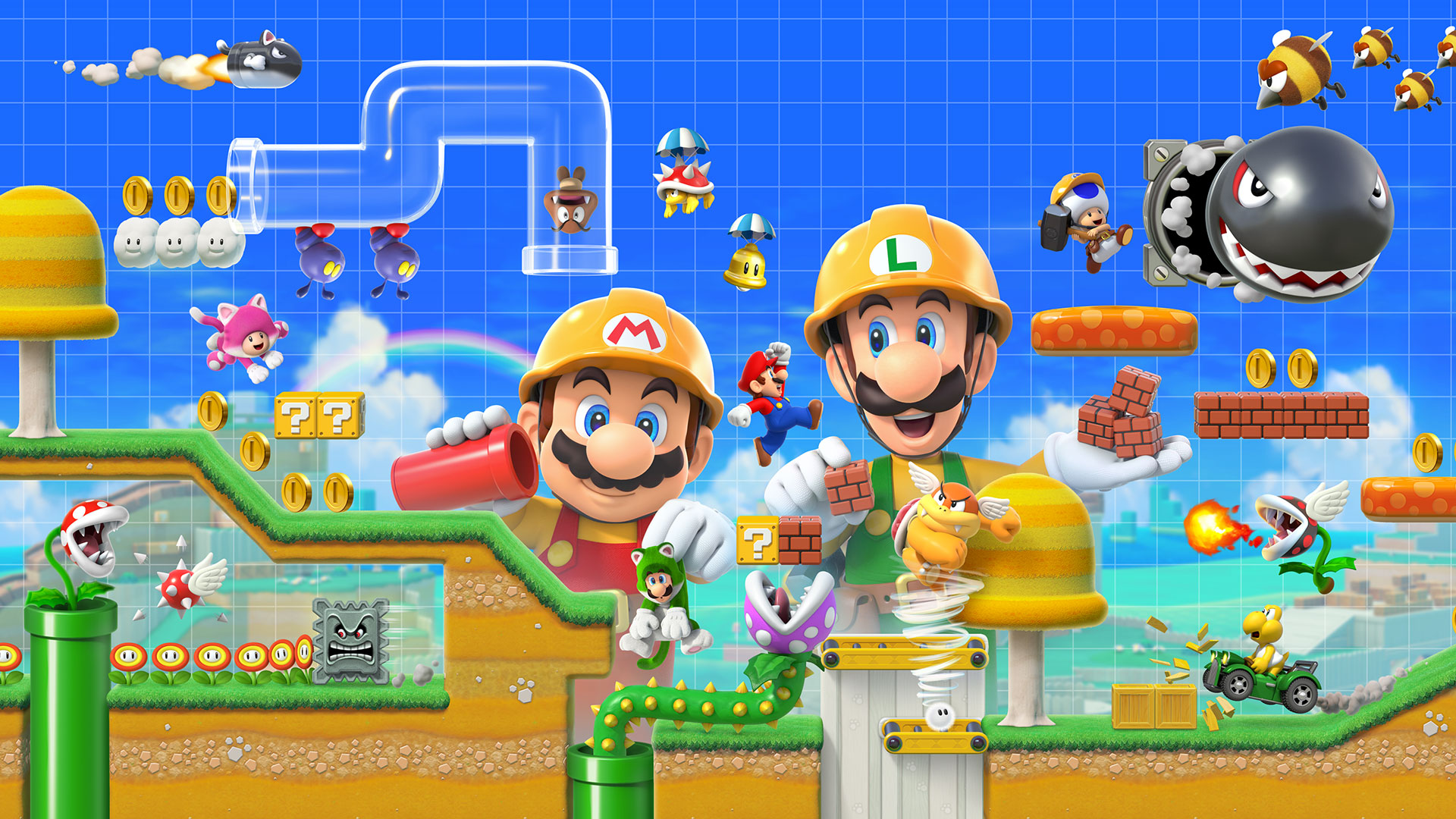
It is technically better than the version that existed on the 3DS or Wii, with anyone you were friends with on Miitomo or Super Mario Run automatically added as Switch friend suggestions, but it is a laborious process that makes building a Switch community among friends a trickier task. It also doesn't help that my friends list is now just a random list of usernames rather than a person's real details.
But the quirks don't stop there. They extend to the games too. Take Super Mario Maker 2 for example. One of the biggest new features is the ability to create multiplayer titles, filled with the kind of madness you'd expect from the creative brains around the world from races to deathmatches of sorts. But, in order to play that level with your friends, you need to physically be in the room with them. You can't create a really awesome multiplayer level and then message your mates to play it with you online, instead you're destined to play it either with random strangers or a collection of friends that you can get into your living room.
Even if you consider the fact the Switch now supports cloud saves – so that in the unfortunate event you lose/destroy your Switch you don't lose your 100+ Zelda: Breath of the Wild save to oblivion – the fact it only works on select games is another head-scratcher for Nintendo's online offerings. No matter what angle you come at the Nintendo Switch Online service, it feels half-baked. Not only does it feel like the Japanese gaming giant isn't listening to feedback, despite the fact it's a service that could benefit from a few tweaks, but with every new title that's released the intricacies around going online get more and more convoluted.

Sam Loveridge is the Brand Director and former Global Editor-in-Chief of GamesRadar. She joined the team in August 2017. Sam came to GamesRadar after working at TrustedReviews, Digital Spy, and Fandom, following the completion of an MA in Journalism. In her time, she's also had appearances on The Guardian, BBC, and more. Her experience has seen her cover console and PC games, along with gaming hardware, for a decade, and for GamesRadar, she's in charge of the site's overall direction, managing the team, and making sure it's the best it can be. Her gaming passions lie with weird simulation games, big open-world RPGs, and beautifully crafted indies. She plays across all platforms, and specializes in titles like Pokemon, Assassin's Creed, The Sims, and more. Basically, she loves all games that aren't sports or fighting titles! In her spare time, Sam likes to live like Stardew Valley by cooking and baking, growing vegetables, and enjoying life in the countryside.


